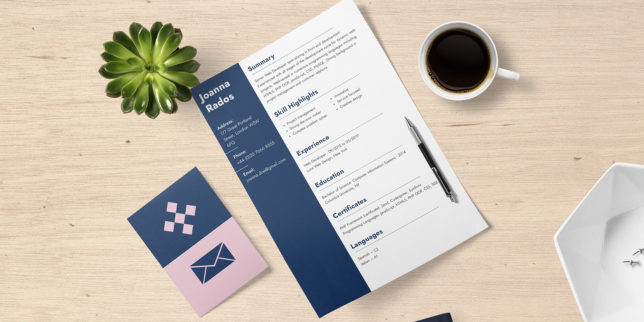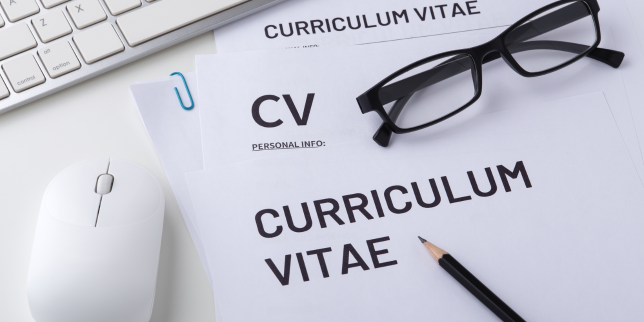The hospitality industry offers a wealth of job opportunities that can be both satisfying and financially rewarding. Whether you’re new to the field or looking to advance your career, the way you present your skills and experience on your resume for hospitality industry can make all the difference. Here’s a guide to crafting a hospitality industry resume that stands out—plus, don’t forget to check out my recommended professional resume service to get expert help with your CV.
Do – Tailor Your Resume for Hospitality Industry

When applying for jobs in the hospitality industry, it’s crucial to customize your resume specifically for this field. Keep these pointers in mind:
- Focus on relevant skills: Emphasize transferable skills that are highly desired within the sector, such as customer service, communication abilities, and problem-solving aptitude.
- Use appropriate keywords: Identify and incorporate industry-relevant terminology from the job description to highlight your knowledge of various aspects of hospitality (event planning, catering management, etc).
- List any related certifications or training courses: If you have attained specialized qualifications (e.g., food handling certificates), be sure to include them prominently.
By tailoring your resume towards the hospitality sector’s unique demands and expectations, showcasing pertinent skillsets, and emphasizing corresponding experiences, employers will immediately recognize your clear understanding of their needs and eligibility for that specific role.
Don’t – Overload Your Resume with Irrelevant Information

While crafting your resume, you must be mindful of the information you include. Avoid cluttering it with unnecessary details by following these tips:
- Keep it concise: Stick to a one-page resume if possible, focusing on essential skills and experiences related to the job in question.
- Omit unrelated work history: Exclude positions that don’t showcase any relevant experience or transferable skill sets for the role you’re applying to within the hospitality industry.
- Focus on impactful achievements only: Highlight your major accomplishments instead of listing routine tasks; this will help emphasize how your past roles align with your targeted hospitality position.
Eliminating irrelevant information from your resume lets you capture potential employers’ attention quickly and make a strong case for why they should hire you for their hospitality team.
Do – Lay Out Your CV in a Professional Way

Getting serious about crafting a winning CV is vital when it comes to impressing potential employers. Properly structuring your resume will help you present yourself as an organized, professional candidate. Here’s what you need to do to achieve this:
- Choose an easy-to-read template: Opt for simplicity and readability over complex designs. Select clean fonts (Arial or Times New Roman), and ensure font sizes are consistent across the document.
- Organize sections effectively: Begin with personal information at the top, followed by work experience, education details, relevant skills, and certifications/awards.
- Use bullet points wisely: When describing past roles or achievements, use concise bullet points instead of long paragraphs to make your resume easily scannable for recruiters.
A well-laid-out CV can vastly improve your chances of standing out among other applicants in the hospitality industry, so pay special attention to form and presentation while compiling this critical document.
Don’t – Use Unnecessary Jargon or Complicated Language

When crafting your resume for the hospitality industry, it’s crucial to ensure your message is clear and comprehensible. Here’s how:
- Avoid overused buzzwords: Skip clichéd phrases like “team player” or “hard worker,” which employers may overlook. Instead, provide specific examples illustrating these qualities.
- Be precise in descriptions: Clearly describe task responsibilities and results using simple language. For example, say “Improved team efficiency by implementing a new system,” rather than getting lost in jargon-ridden explanations.
- Remain consistent with terms: Stick to widely accepted titles for roles (such as ‘Receptionist’ instead of ‘Guest Services Wizard’) to avoid confusion among hiring managers.
Maintaining clarity and straightforwardness when describing experiences and skills on your resume can improve the chances that recruiters will recognize how suitable you are for their open position within the hospitality sector.
Do – Highlight Relevant Work Experience and Skills

Showcasing pertinent work experience and skills in the hospitality industry can boost your chances of landing that dream job:
- Pinpoint transferable skills: Mention abilities like time management, multitasking, and leadership from previous roles which will directly benefit the new position, even if you acquired them in a different industry.
- Spotlight customer service achievements: Share instances where you have dealt with customers successfully or resolved conflicts to prove your competency in guest relations.
- Include language proficiencies: If you’re fluent in multiple languages, this could be an invaluable asset for catering to international guests, so make sure to highlight it prominently.
Putting a spotlight on relevant work experiences and abilities that showcase how well-equipped you are for a specific role within the hospitality arena means hiring managers will recognize your potential as a valuable team member.
Don’t – Include Personal Details Unrelated to the Position

Sharing too much non-job-related personal information can distract from your resume’s core message and harm its effectiveness. So keep clear of the following:
- Exclude private matters: Steer clear of discussing political beliefs, religious affiliations, or relationship statuses, as these have no bearing on your hospitality job prospects.
- Avoid listing hobbies unless relevant: Leisure activities should only be included if they demonstrate transferable skills valuable for the position you’re applying for (e.g., volunteering experience in events management).
- Keep sensitive data confidential: There is no need to disclose details like social security numbers or passport copies within your resume.
Maintaining a professional tone by focusing solely on pertinent information will allow potential employers to evaluate your suitability for their vacant role without getting sidetracked by unnecessary distractions.
The Bottom Line
Once you’ve taken this advice onboard and built a compelling resume for hospitality industry, be certain to proofread the document thoroughly before submitting it. Get a trusted third party to look over it as well because a fresh pair of eyes can spot errors you’ve missed yourself. With that, your resume will be ready for the big time!
Amit is a lifelong learner and advocate for personal growth, fueled by 15+ years in HR across various functions. His journey includes a dual Master's degree: an MBA specializing in HR and Information Technology, and another Masters dedicated to HR Management & career development. This blend of knowledge allows him to translate personal development strategies into actionable steps. Whether you're seeking career advancement or simply becoming your best self, Amit is here to share insights, tips, and inspiration to help you unlock your full potential.




















